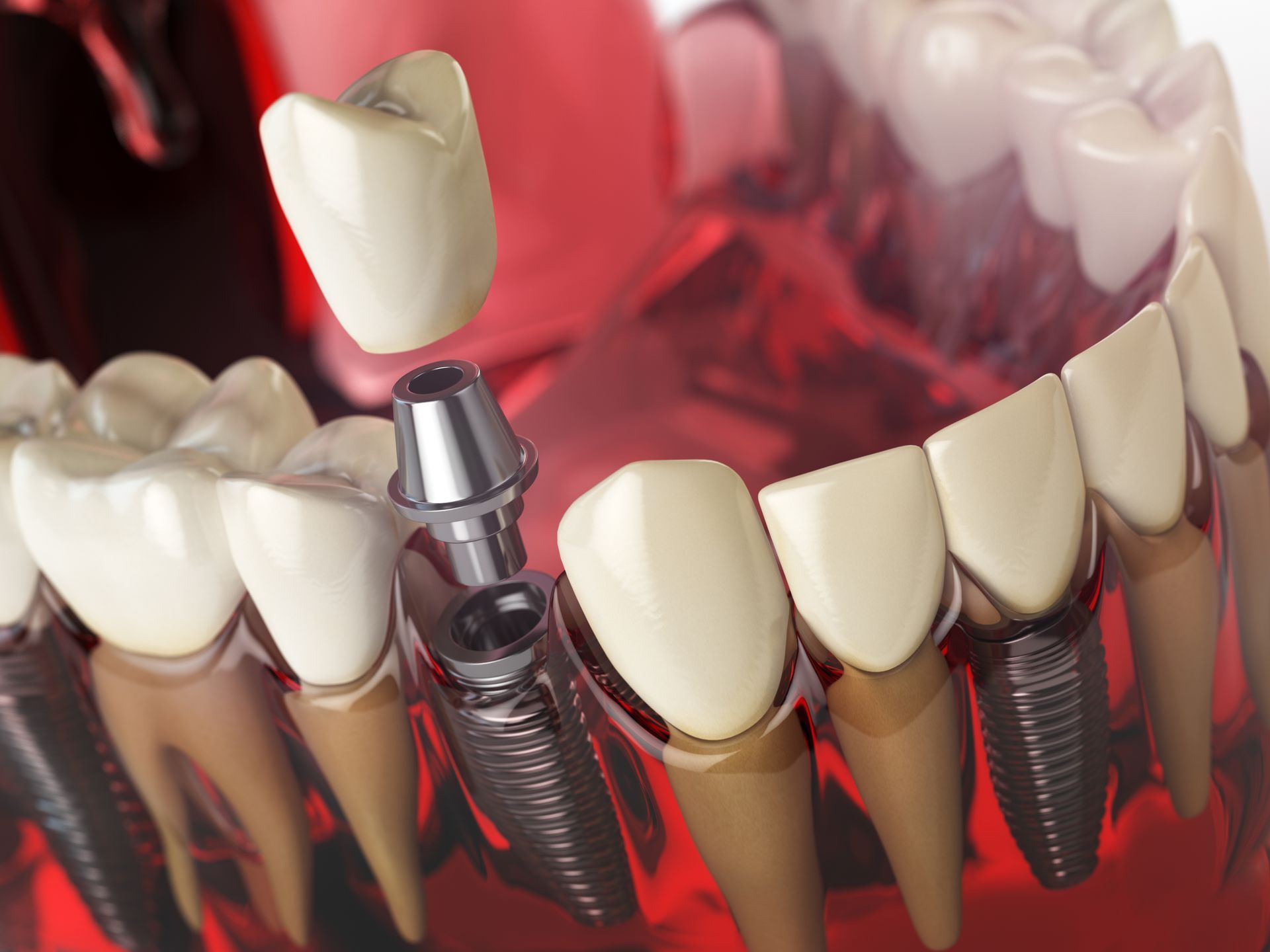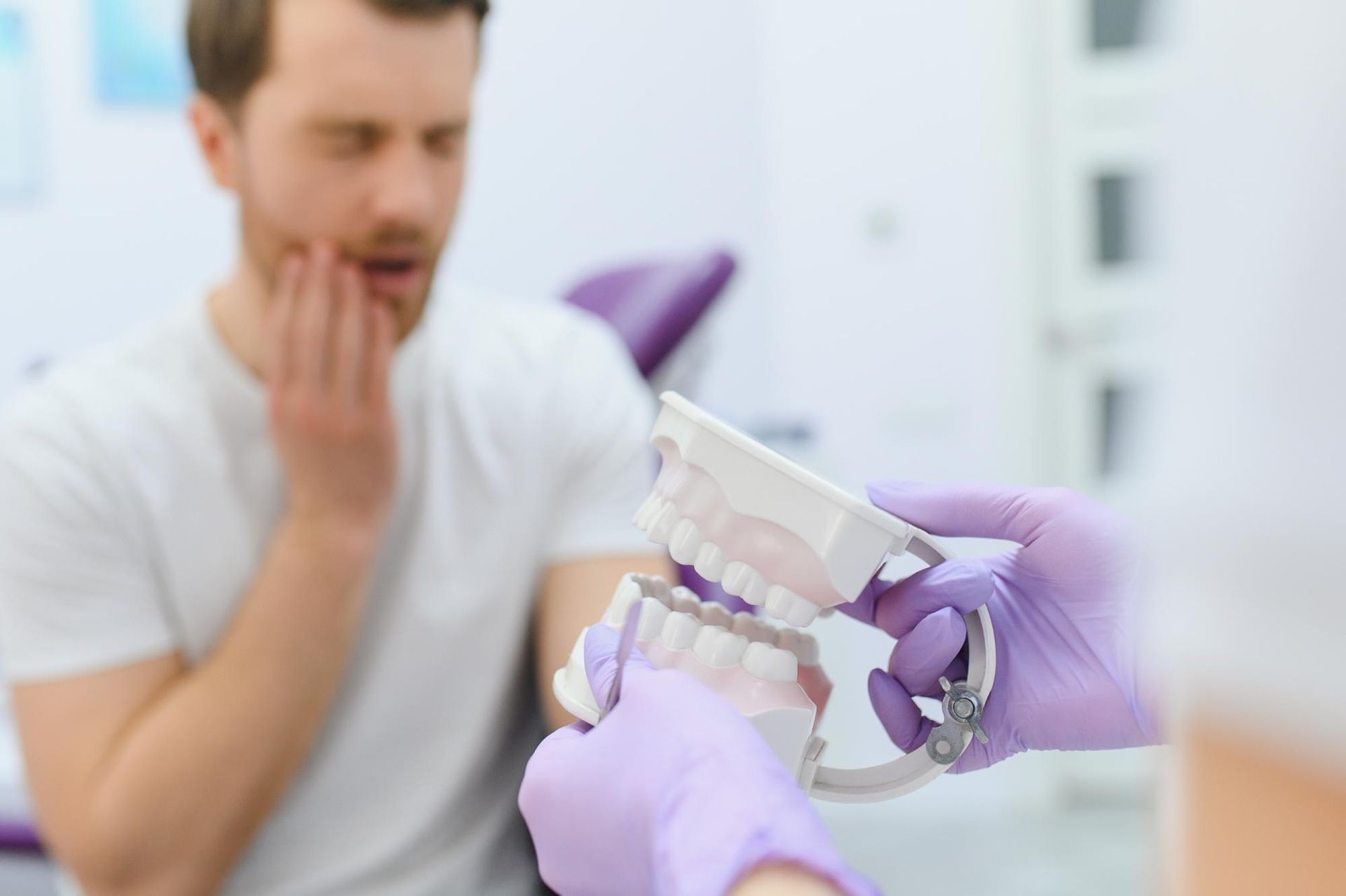15511 N Florida Ave, Tampa, FL 33613, United States of America
Top Dental Crowns Tampa FL: Restore Your Smile Today

17 Minute Read
Searching for top-quality dental crowns Tampa, FL? Discover how dental crowns can repair damaged teeth, enhance your smile, and learn about the process and types available.
Key Takeaways
- Dental crowns are essential for restoring functionality and aesthetics, helping recover damaged teeth and improve smiles.
- There are various types of crowns (porcelain, metal, porcelain-fused-to-metal, pressed ceramic, and ceramic), each serving specific needs and purposes.
- The dental crown process includes an initial consultation, tooth preparation with temporary crowns, and the final placement of a permanent crown, which can be streamlined with advanced CEREC technology for same-day solutions.
Understanding Dental Crowns
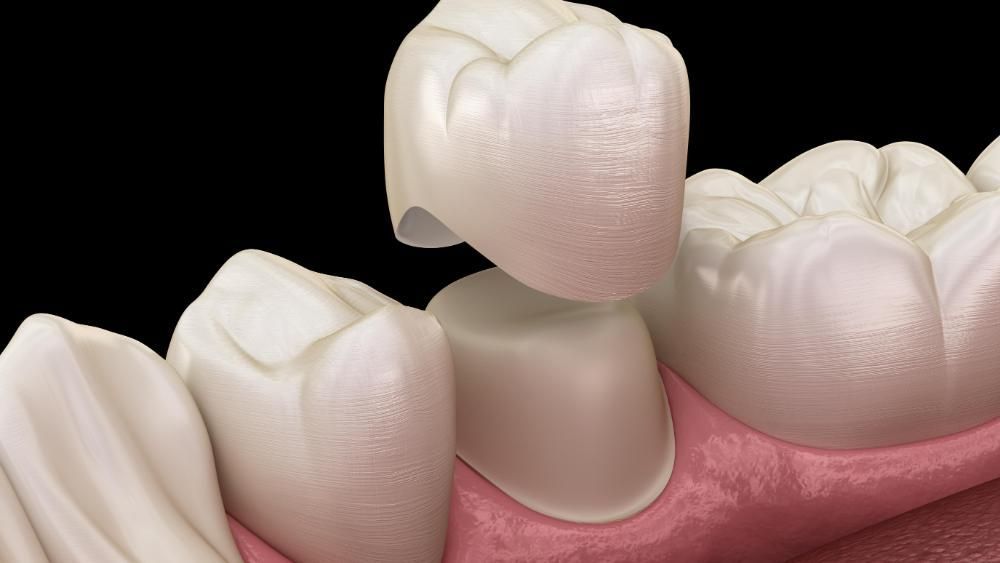
Dental crowns are designed to cover and protect damaged teeth, restoring their shape, size, and function. They are essential for restoring lost tooth structure due to decay, trauma, or wear, enabling individuals to chew properly and maintain oral health. But beyond their functional benefits, dental crowns can significantly enhance the overall aesthetics of a person’s smile, leading to increased confidence. These versatile dental restorations play a crucial role in both restoring functionality and improving the aesthetics of your smile.
Dental crowns are a cornerstone of modern dentistry, offering solutions for a variety of dental issues. Whether you’re dealing with severe decay, a cracked tooth, or simply want to improve your smile’s appearance, dental crowns can provide a robust and aesthetically pleasing solution. Understanding the different types of dental crowns and their benefits is essential for making informed decisions about your dental care.
Types of Dental Crowns
When it comes to dental crowns, there are several options to choose from, each with its own set of advantages and disadvantages. Porcelain dental crowns are a popular choice because they cap a natural tooth for protection and strength while offering a natural appearance. They are particularly preferred for patients with metal allergies, as they contain no metal and prevent adverse reactions. However, porcelain crowns can be prone to chipping over time.
Metal crowns, on the other hand, are known for their durability and longevity. However, their metallic appearance can be a disadvantage for those seeking a more natural look. Porcelain-fused-to-metal crowns combine the strength of metal with the aesthetics of porcelain, but they can chip, exposing the metal beneath.
Pressed ceramic crowns feature a hard inner core similar to porcelain crowns but may also chip over time. For those seeking the most natural appearance, a ceramic crown is an excellent choice. They provide a lifelike look and are suitable for individuals with metal allergies.
Each type of dental crown serves a specific purpose and caters to different needs, making it essential to consult with your dentist to determine the best option for you.
Benefits of Dental Crowns
Dental crowns are key restorations meant to protect and repair damaged teeth. They help restore lost tooth structure, enabling better chewing and speaking functions. Dental crowns also significantly enhance the appearance of a person’s smile. They address issues such as severe decay, discoloration, or structural damage, leading to a more pleasing and confident appearance.
The benefits of dental crowns extend beyond just restoring functionality and aesthetics. They also help prevent further dental issues by providing a protective barrier over the damaged tooth. This prevents bacteria from causing additional decay or infection, preserving your oral health in the long run. Investing in dental crowns not only improves your smile but also helps maintain your overall dental health.
The Process of Getting Dental Crowns
Obtaining dental crowns involves multiple steps, starting from an initial consultation, followed by tooth preparation, and finally the placement of the permanent crown. This comprehensive process ensures that the dental crown fits perfectly and functions seamlessly with your existing teeth.
The journey to a restored smile begins with understanding each stage of the procedure, which we’ll delve into in the following subsections.
Initial Consultation
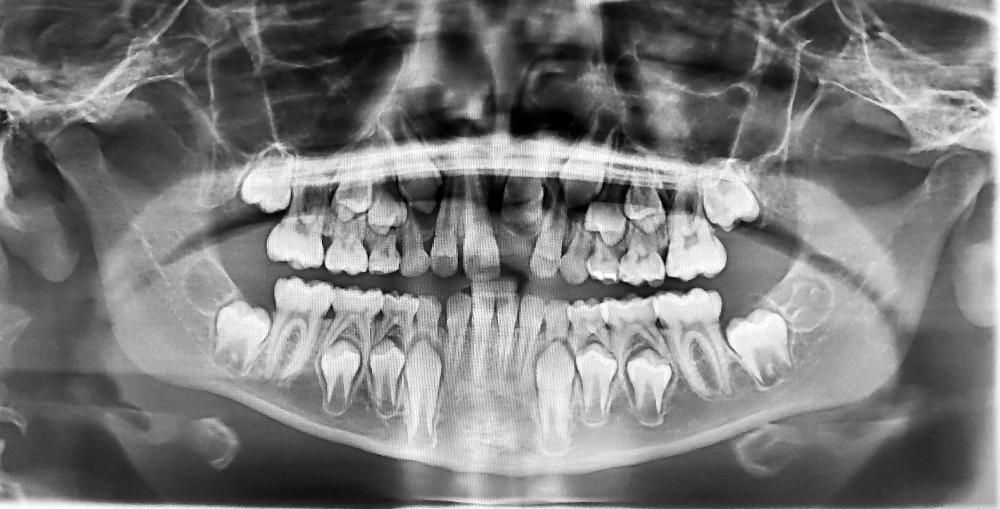
During the first dental appointment, the dentist will perform a thorough examination and may take X-rays to assess the condition of the tooth needing a crown. This initial consultation lets the dentist create a tailored treatment plan addressing your specific needs. The dentist will discuss treatment options, costs, and any potential risks involved.
Tampa Dental Implants emphasizes personalized care and expertise during this initial phase. Scheduling a dental appointment provides a comprehensive evaluation, setting the foundation for successful restoration, including root canal therapy. This thorough approach guarantees that subsequent steps are executed with precision and care.
Preparation and Temporary Crowns
The preparation phase for a dental crown involves reshaping the existing tooth structure to ensure a proper fit for the crown. The dentist will remove any decay and then shape the tooth, followed by taking impressions to create a custom temporary crown. These impressions are sent to a dental lab to craft the permanent crown.
A temporary crown is placed over the prepared tooth while waiting for the permanent one. The temporary crown acts as a protective barrier, preventing sensitivity and damage while maintaining functionality.
Traditional crowns require multiple visits and temporary crowns, making this step essential for comfort and health.
Placement of Permanent Crown
The final step in the dental crown process is the placement of the permanent crown. During this appointment, the dentist will fit and bond the permanent crown securely to the tooth. This involves ensuring that the crown matches the surrounding teeth in appearance and function, providing a seamless and natural look. Local anesthetics are often used to minimize discomfort during the procedure.
After fitting and adjusting the permanent crown, it is cemented in place, completing the restoration. The result is a durable and aesthetically pleasing dental restoration that blends perfectly with your natural teeth.
For those opting for same-day crowns, CEREC technology allows for the creation and placement of the crown in just one visit, significantly reducing the time spent in the dental chair.
Caring for Your Dental Crowns
Proper care and maintenance are crucial for ensuring the longevity and effectiveness of dental crowns. Consistent oral hygiene practices can significantly enhance the lifespan of dental crowns, preventing issues like tooth decay and ensuring that your restoration remains in excellent condition.
Let’s explore the specific steps you can take to care for your dental crowns daily and handle issues like bruxism.
Daily Oral Hygiene

Maintaining good daily oral hygiene is essential for the health and longevity of your dental crowns, similar to natural teeth. Use a soft-bristled toothbrush and non-abrasive toothpaste to avoid damaging the crown’s surface. Regular brushing and flossing are critical to prevent plaque buildup, which can lead to decay and gum disease. While crowns made of porcelain resist stains better than natural teeth, it’s still important to follow a thorough oral care routine.
Flossing daily is particularly important to prevent food particles from getting stuck around the crown. Using a non-alcoholic mouthwash can also help maintain oral hygiene without harming the dental crowns. Even though crowns are made from stain-resistant materials, they can still discolor over time without proper care.
Regular dental appointments for professional cleanings and check-ups are also recommended to ensure your crowns remain in optimal condition.
Handling Bruxism

Bruxism, or teeth grinding, can pose a significant threat to the integrity of dental crowns. Wearing a mouthguard at night is highly recommended to protect your crowns from bruxism. These custom-fitted mouthguards act as a protective barrier, absorbing the forces exerted during grinding and preventing potential damage to your dental work.
These precautions help ensure that your dental crowns remain intact and functional for years.
Common Concerns About Dental Crowns
It’s natural to have concerns when considering dental crowns. Understanding common issues and solutions can provide peace of mind and help inform your dental care decisions.
Let’s explore two of the most common concerns: staining and mild discomfort post-procedure.
Do Dental Crowns Stain?
Porcelain crowns are valued for their aesthetics and durability, resisting stains better than natural teeth. Although a porcelain crown resists stains, maintaining its color requires regular brushing, flossing, and avoiding discoloring foods and drinks.
By following these practices, you can ensure that your dental crowns maintain their natural appearance for a long time.
Mild Discomfort Post-Procedure
Mild discomfort or sensitivity after getting a dental crown is common and usually resolves within a few days. Sensitivity to temperature changes is also common in the weeks following the procedure. Over-the-counter pain relievers and cold therapy can help manage any discomfort.
Consult your dentist if pain persists beyond two weeks for further evaluation.
Advanced Dental Technology in Tampa FL
Tampa, FL, is at the forefront of advanced dental technology, offering state-of-the-art solutions for dental care. The use of computer-assisted design and manufacturing allows for the creation of high-quality dental crowns that fit perfectly and look natural.
Two key aspects of this advanced technology are CEREC crowns and the role of dental laboratories.
CEREC Crowns: One Visit Crowns
CEREC crowns revolutionize the dental restoration process by allowing for the design and fabrication of dental crowns in a single appointment. Using digital scanning and computer-assisted design, CEREC technology creates precise and durable crowns that can be placed immediately. This eliminates the need for multiple visits and temporary crowns, making the process more convenient and efficient for patients.
Patients benefit from the convenience of same-day crowns, reducing the time and discomfort of traditional placements. The advanced technology ensures that the crowns are not only functional but also aesthetically pleasing, matching the natural teeth in both appearance and feel.
Role of Dental Laboratory
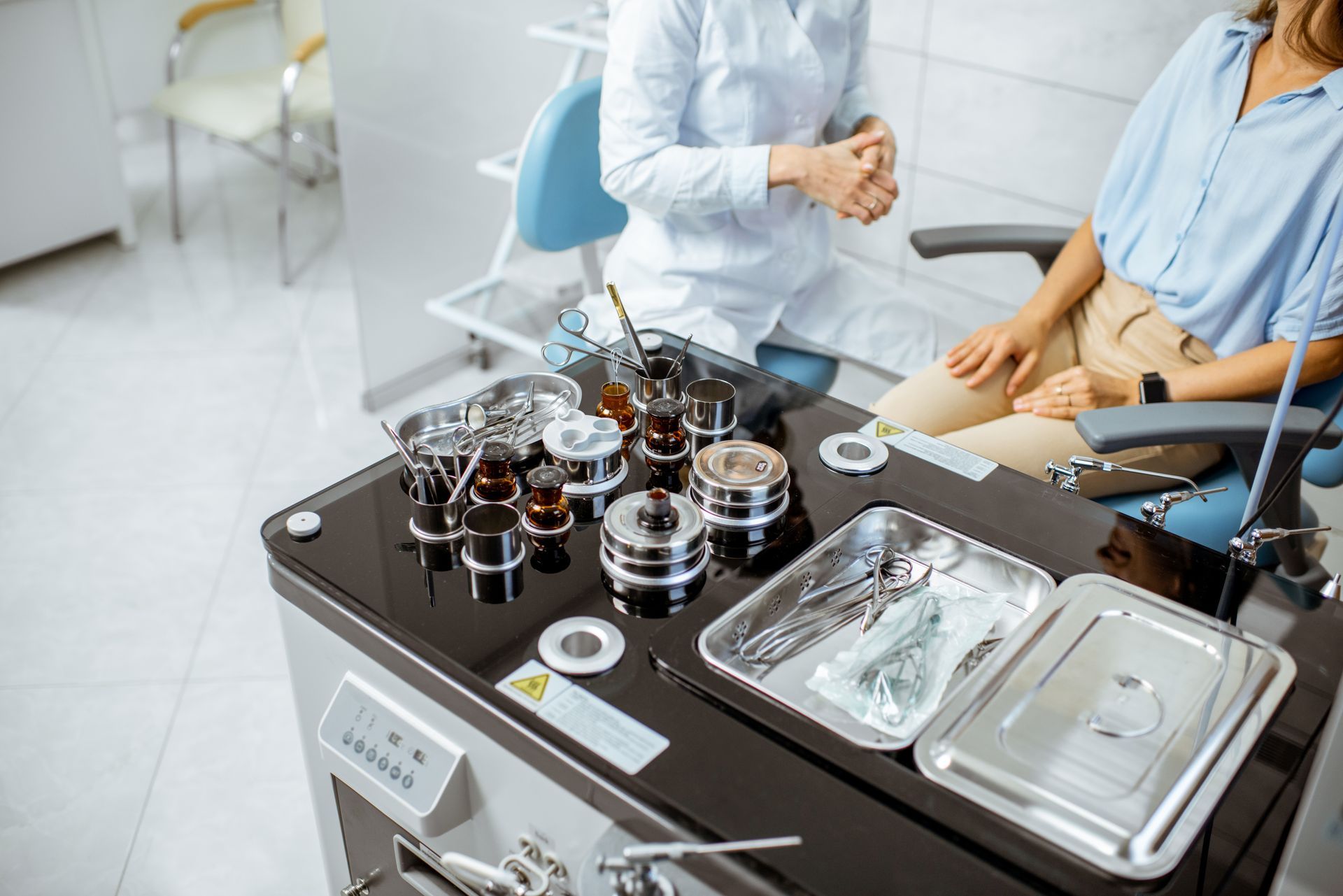
Dental laboratories play a crucial role in the crafting of custom dental crowns. The process involves careful attention to detail, ensuring that the final product matches the patient’s specific dental needs in terms of size, shape, and color. This customization is crucial for achieving a natural look and perfect fit, enhancing the restoration.
The collaboration between the dentist and the dental laboratory ensures that each crown is crafted to the highest standards of quality and precision. This partnership is key to delivering dental restorations that not only restore functionality but also enhance the patient’s smile and confidence.
Meet Our Dentists
The experienced dentists at Tampa Dental Implants, including Dr. Keenan Osman, specialize in implant dentistry and dental crown procedures. Dr. Osman has extensive experience in implant dentistry, ensuring that patients receive the best possible care and outcomes. Their commitment to patient care and advanced dental technology makes them a top choice for dental restorations in Tampa.
With Tampa Dental Implants, patients can trust that their dental health is in capable hands. From the initial consultation to the final placement of the crown, Dr. Osman and his team are dedicated to providing a comfortable and successful dental experience.
Summary
Dental crowns are a powerful solution for restoring the functionality and appearance of damaged teeth. Whether you choose porcelain, metal, or ceramic crowns, each type offers unique benefits tailored to your needs. The journey from the initial consultation to the final placement of the permanent crown involves meticulous steps to ensure a perfect fit and natural look. Proper care and maintenance, including daily oral hygiene and handling bruxism, are essential for the longevity of your crowns. Advanced dental technology in Tampa, FL, such as CEREC crowns, offers the convenience of same-day crowns, while dental laboratories play a crucial role in crafting custom restorations. Choosing Tampa Dental Implants in South Tampa ensures personalized care and expertise, with experienced dentists like Dr. Keenan Osman leading the way. Embrace the transformative power of dental crowns and restore your smile today.
FAQ
Frequently Asked Questions About Dental Crowns
-
What are the different types of dental crowns available?
The different types of dental crowns include porcelain, metal, porcelain-fused-to-metal, and ceramic crowns, each offering unique benefits to suit individual dental needs. Selecting the right crown type is essential for both functionality and aesthetic considerations.
-
How long does the process of getting a dental crown take?
Getting a dental crown usually takes two appointments: one for preparation and another for placement. With CEREC technology, you can have a same-day crown completed in just one visit.
-
Are dental crowns prone to staining?
Dental crowns, particularly porcelain ones, are highly resistant to staining, even more so than natural teeth. Proper oral hygiene practices, such as regular brushing and flossing, can help maintain their appearance.
-
What should I do if I experience discomfort after getting a dental crown?
Mild discomfort after getting a dental crown is typically normal and should improve within a few days. If the pain lasts longer than two weeks, it's advisable to consult your dentist for further evaluation.
-
How can I protect my dental crowns from damage due to teeth grinding?
Wearing a custom-fitted mouthguard at night is essential for protecting your dental crowns from damage caused by teeth grinding. It effectively absorbs the pressure exerted during bruxism, helping to preserve your dental work.

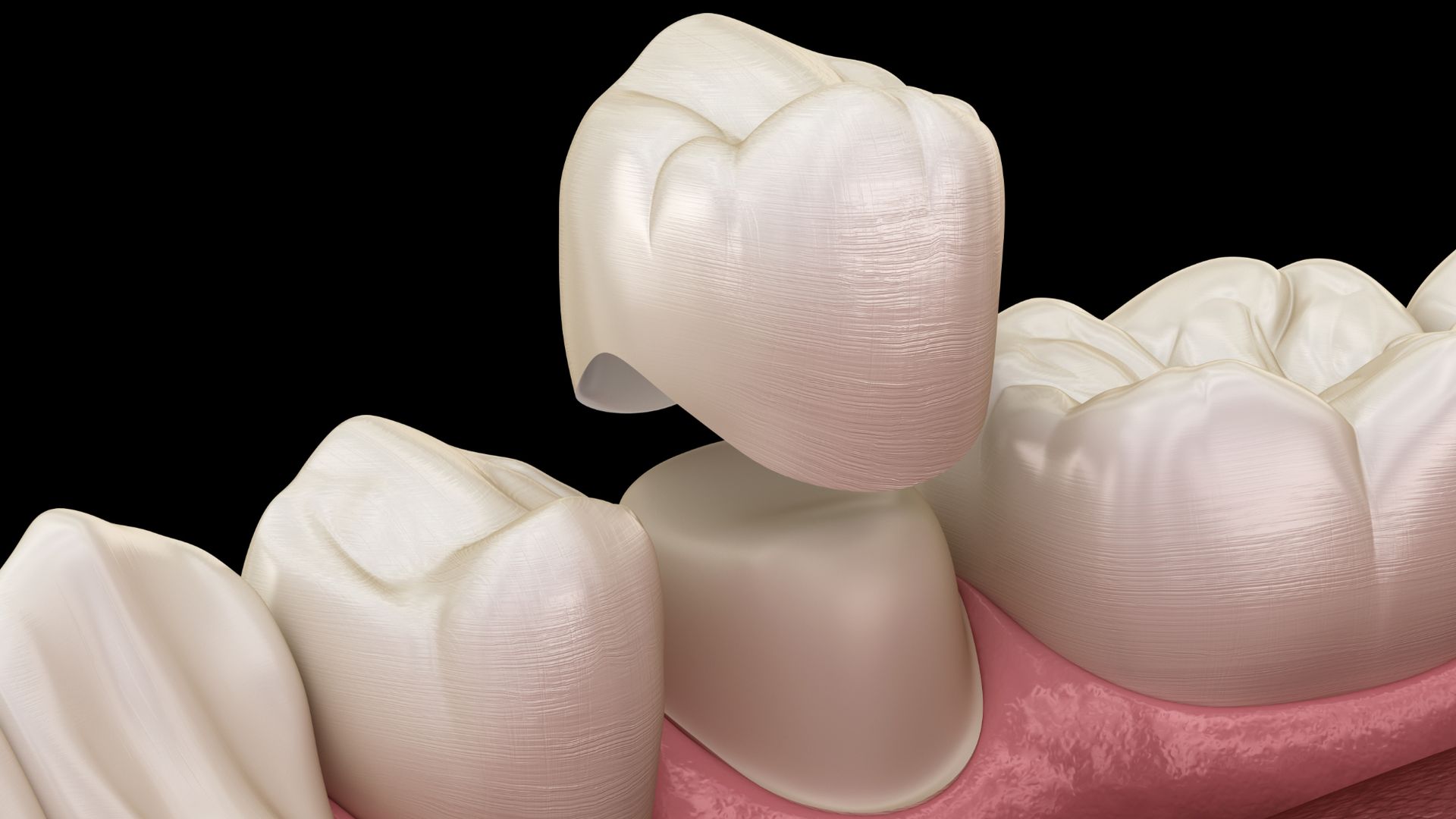


CONTACT TAMPA'S DENTAL IMPLANT EXPERTS
Get The Smile You've Been Dreaming of Today
We offer affordable financing options for all your implant needs, get started with us today by claiming your Free Implant Consult Package!

Other Ways to Contact Us
Get Your Free Dental
Implant Consult Package
Get your First Consultation, Panoramic X-Rays, & Treatment Plan with our head dentist for FREE to see if you qualify for implant treatment. Everything you need to get started transforming your smile. $397 Value. Please note, dental implants are NOT covered by Medicare or Medicaid.
Reserve Your Spot Today - Limited Availability Every Month

Dental Implants
Quick Links
Contact Information
tampadentalimplants@gmail.com
15511 N Florida Ave, Tampa, FL 33613, United States of America
All Rights Reserved | Tampa Dental Implants


